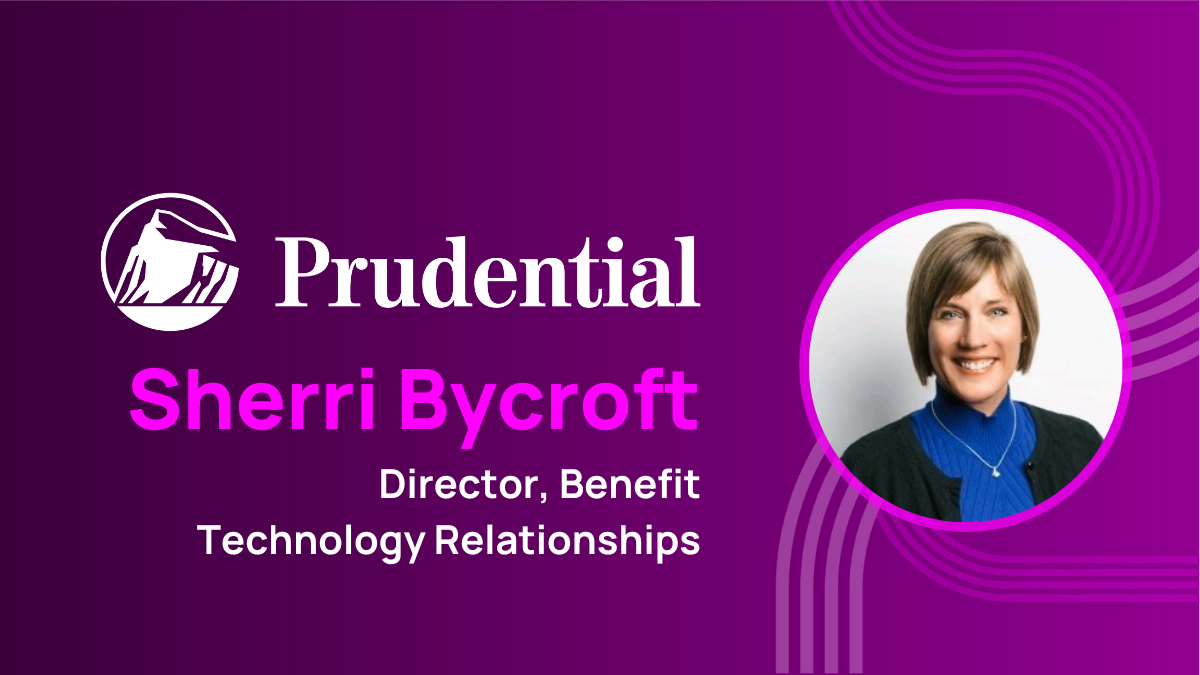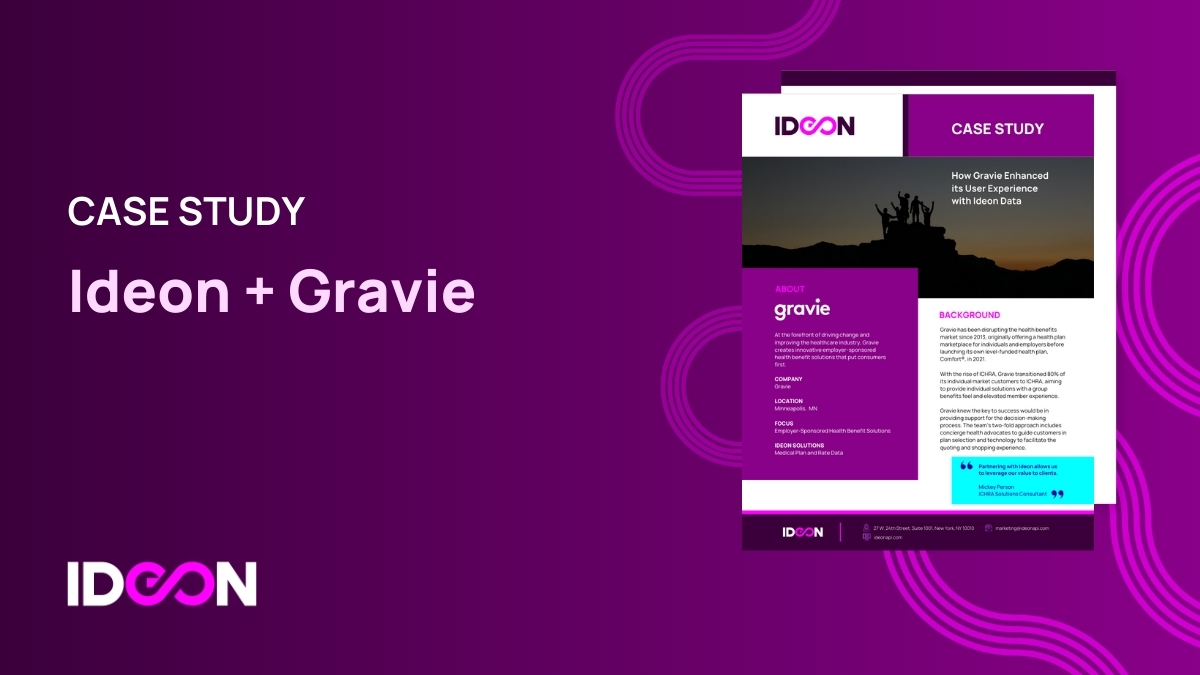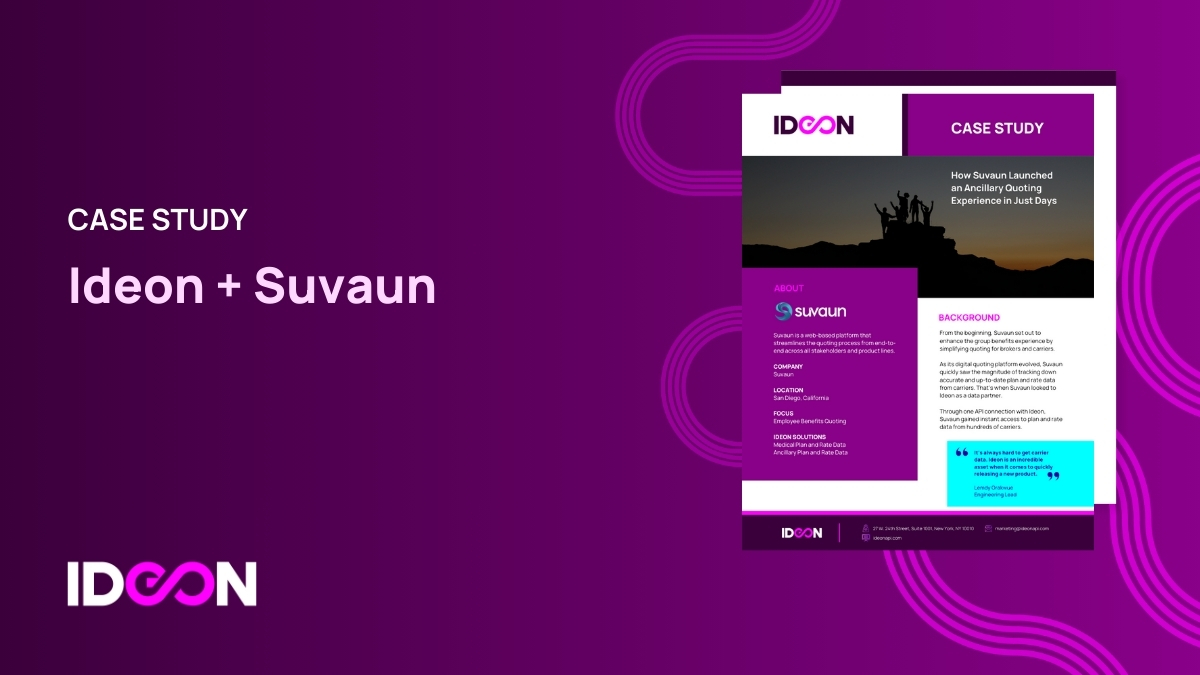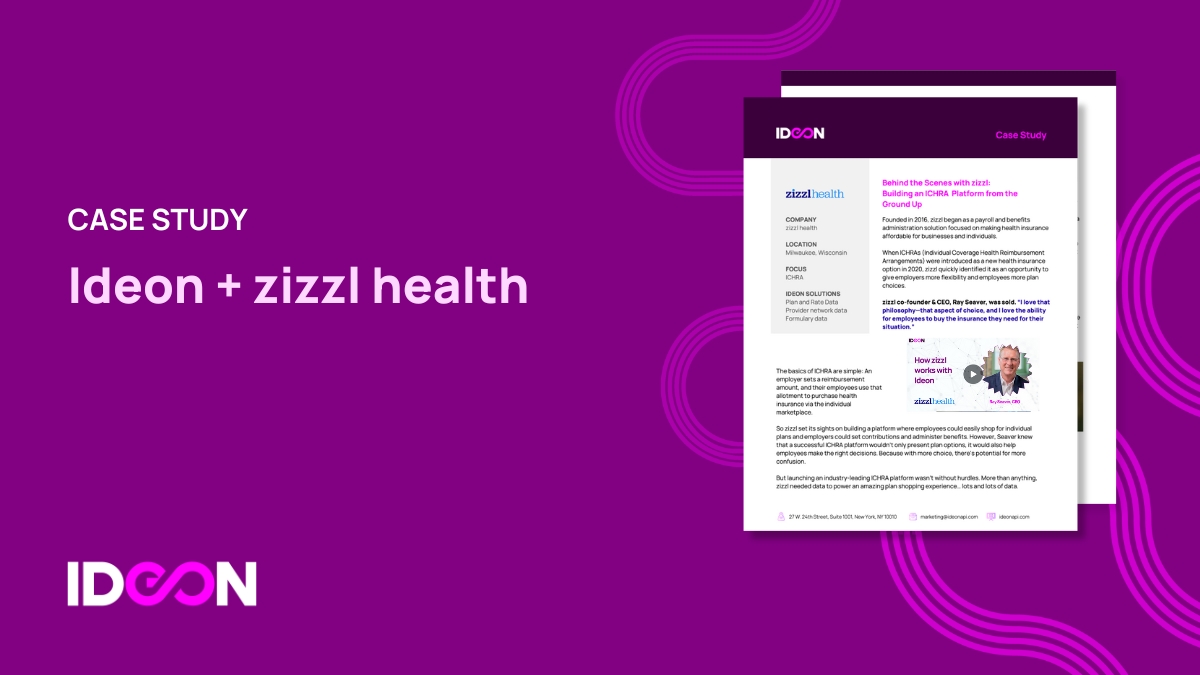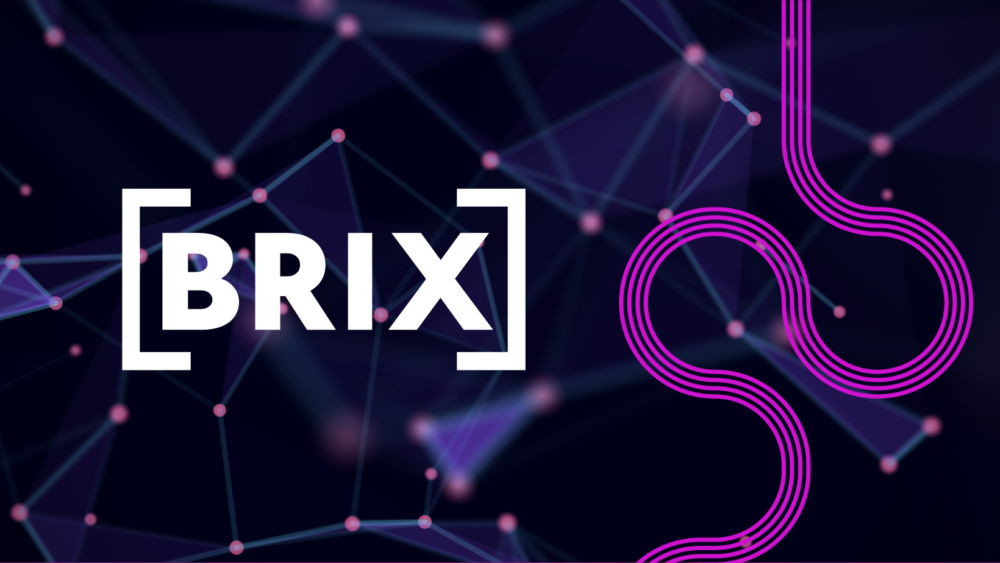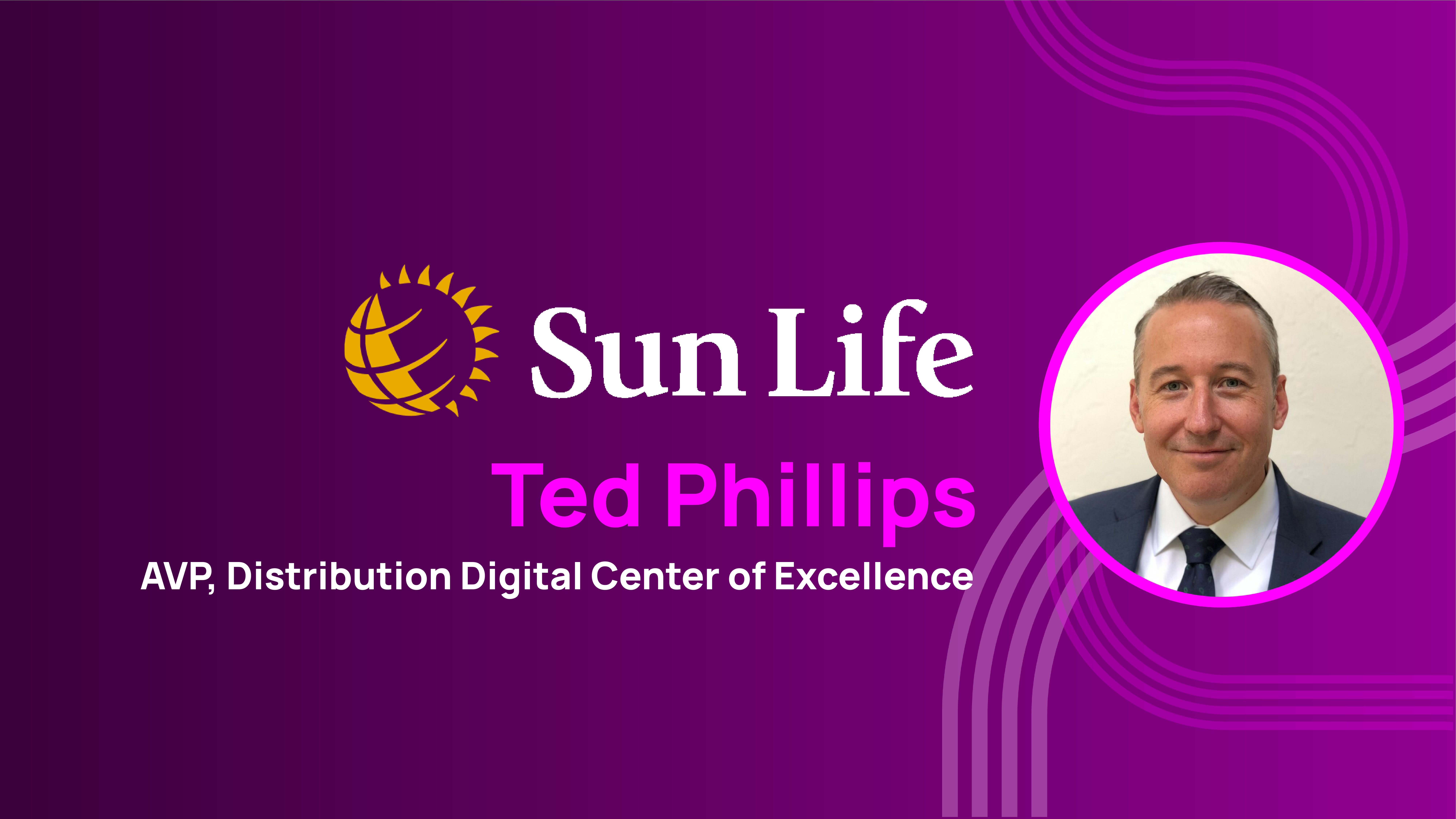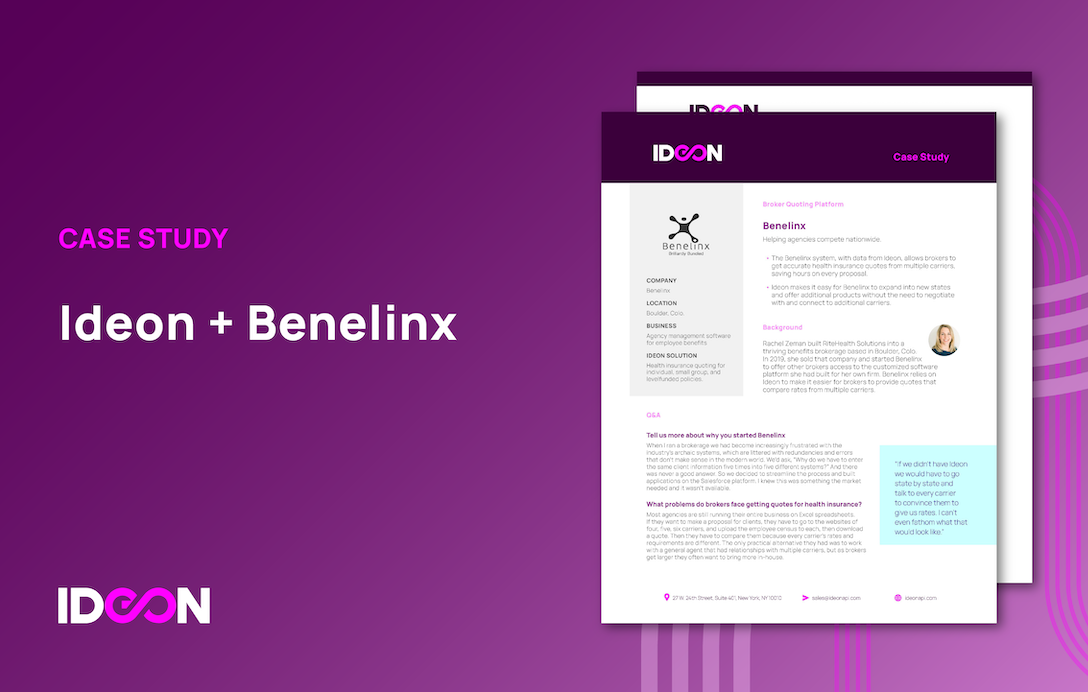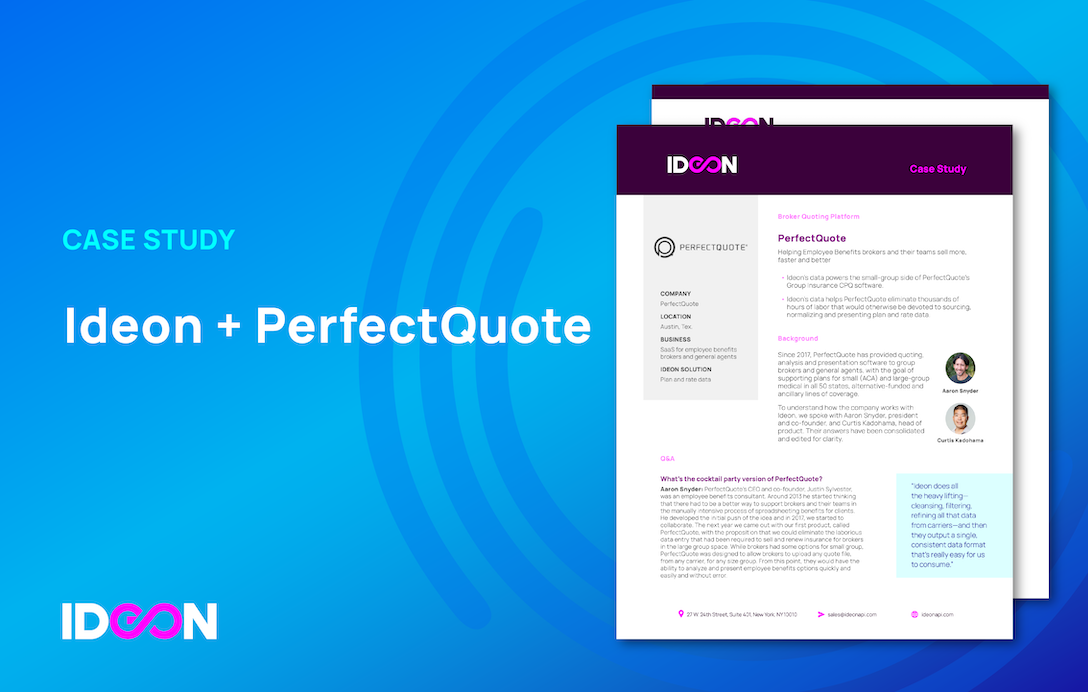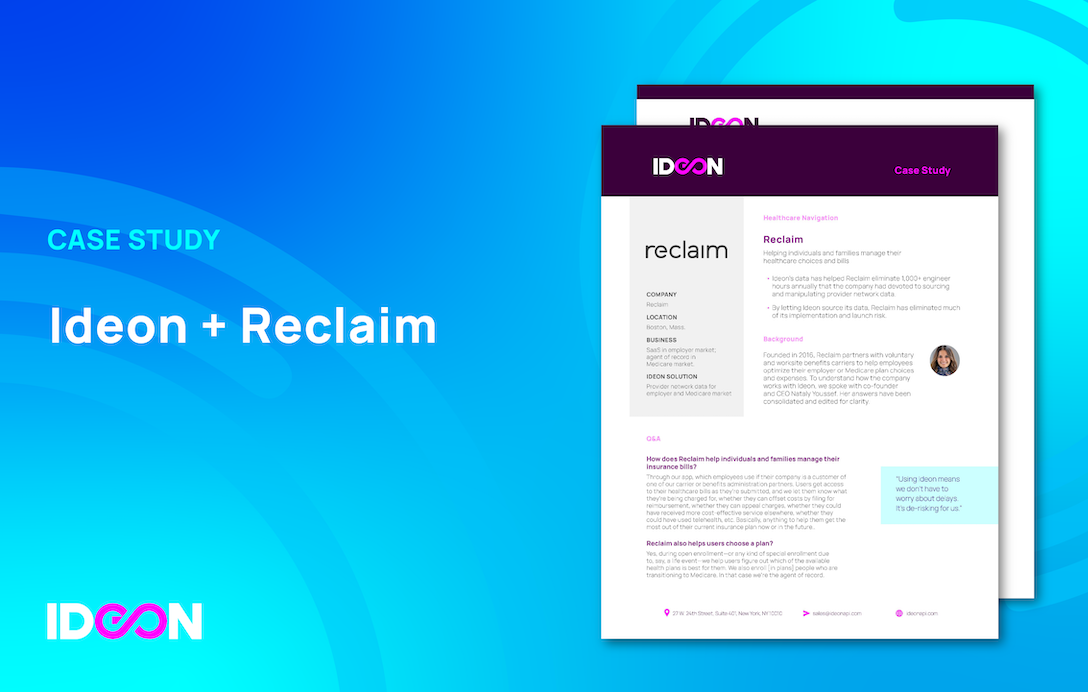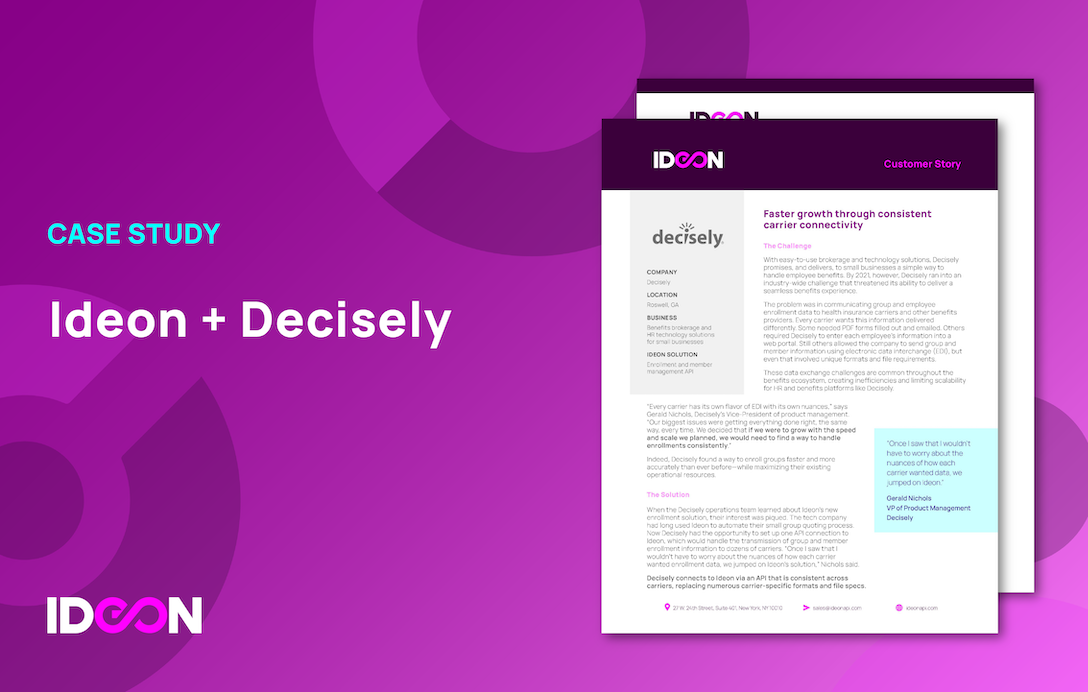Welcome to Episode 5 of Ideon Insights, our monthly interview series featuring thought leaders and innovators driving the benefits industry forward. In this episode, we sat down with Sherri Bycroft, Director–Benefit Technology Relationships at Prudential, to discuss how carriers are prioritizing certain APIs, partnerships with technology platforms, and how Ideon and Prudential developed an advanced solution for EOI auditing and decisions.
In this insightful Q&A, Sherri shares how Prudential is approaching the future of partnerships and technology, and why connected experiences are the key to growth and member satisfaction in the benefits space.
Watch the full episode of Ideon Insights. Below, we’ve highlighted key moments from the conversation.
IDEON: Why are technology partnerships so important for carriers like Prudential today?
SHERRI BYCROFT, Prudential: 15, 20 years ago, we often didn’t know who the platform was that housed data for that customer until after they were sold. Now, it’s on the RFP. If we don’t have a relationship with a group’s technology partner, we could be dead in the water on the sale before we even get to quote it. They’re going to look at that and say, ‘we’re going to choose a carrier that wants to work with our partner.’
It’s just so important in today’s world to be able to exchange data and have a connected experience. My team is being invited to finalist meetings all the time now. They want to hear from the technology team: What are you offering? How are you connecting? What does that look like for me? Connected technology experiences are where they’re making decisions today.
How has the role of brokers evolved in this more connected benefits landscape?
10 plus years ago, you didn’t really see brokers being engaged in how or who a group was choosing for their technology partner. Now brokers are actually bringing technology solutions directly to their customers. It’s creating some stickiness for the broker.
We’ve seen it on the carrier side, that customers are now more committed to their technology solution than they are to a carrier or their broker. The loyalty now is to ‘what is the hardest part of my life to change, and that’s the technology.’
What technologies and APIs are carriers prioritizing now?
Decision support is definitely a huge point of interest right now. Another is quoting APIs. The quote process wasn’t even in conversation five years ago, but now it’s a huge point of interest.
Plan data is another area where we’ve seen progress. We’re finally at a point where carriers are rolling out solutions to send plan configuration data into the technology system.
Everybody’s working toward their own roadmaps and some are very strong in one place and maybe not so much in another. We used to just be so focused on enrollment and eligibility information. But now, our eyes have been opened a bit as to what we can do to make the experience better, and be more proactive in preventing issues with that enrollment data. And so that really leads to plan build and Evidence of Insurability (EOI), and even quoting, all being an interconnected technology experience from quote to claim.
Why did Prudential choose to partner with Ideon?
One of the main reasons Prudential decided to partner with Ideon is because the folks at Ideon understand there’s more opportunity than just what’s being accomplished today. That willingness to say, ‘hey, there are opportunities to do things that have never been done before–let’s find a way to do it together.’
It gave us a lot of excitement for what we could do together, instead of being so siloed in, ‘the technology partner versus the carrier and whose roadmap is more important’. Instead, we have a partner like Ideon, where we are really both committed to delivering something new and better to the market.
How are Ideon and Prudential working together to solve EOI data challenges?
The EOI audit process that Ideon is creating for us is really taking the EOI rules that we have around our plans, and applying them to the enrollment data that’s received from the technology partner. The solution looks at how many of these folks have an amount approved over a guaranteed issue amount, and whether they actually went through the EOI decision process.
By having this EOI audit in place, we can uncover problems before claims time, and prevent a negative claims experience. It’s really important to us to ensure that we’re doing that right. But we just didn’t have the mechanisms in our toolbox to create this. So, Ideon has helped us build this from the ground up. We’re really excited about the fact that it’s going to flush out issues much earlier on.
It also ensures that the EOI decisions that we’ve made have been correctly updated into that technology platform. This actually serves in between as that connectivity, and reports back if we’ve approved something and it’s not updated in that downstream system. It’ll flush out issues and report it back to the platform, so we can make sure that it’s corrected.
How does Ideon help improve data quality for carriers?
The only thing that solves data quality issues is having robust validations on that data. Ideon has applied a more robust set of validations to all of our transactions. If the data is not in good order, Ideon catches it at the time they receive it and doesn’t pass it on to us. This helps keep bad data out of our system and reduces operational costs.”
What’s the state of API adoption in the benefits industry?
I think we’re still in our infancy, maybe toddler stage, but we certainly have a long way to go. I remember sitting in a room full of carriers and we were having discussions around APIs in 2016, and it was like everybody wanted to be there by 2020. We’ve learned a lot since and we’ve seen how long this has taken, but I think like all technology, you’re going to see it start to accelerate. But how far along are we going to be? We might be getting ready to enter our teenage years.
Stay tuned for more episodes of Ideon Insights each month! To get the latest updates and industry trends, subscribe to our newsletter below.
